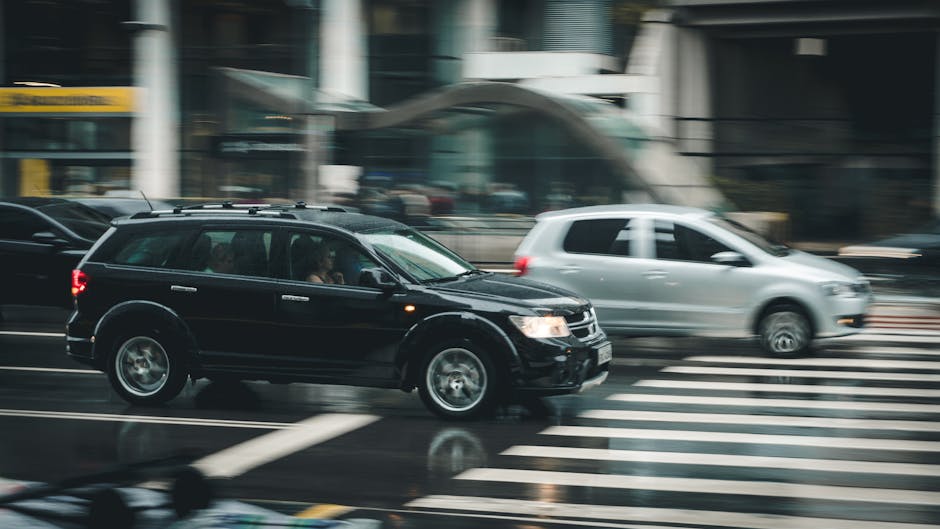Overview
The European Commission classifies vehicles as part of emission standards and other vehicle regulations. Passenger cars receive an “M” categorization, while commercial vehicles receive an “N” categorization. Two directives of the European Parliament and of the Council serve as sources for these definitions and classifications: 2002/24/EC of 18 March 2002 and 2007/46/EC of 5 September 2007. In addition, the EU legislation on driving licenses (Directive 2006/126/EC of 20 December 2006) provides for a splitting of some categories of vehicles.
| Category | Vehicle type |
|---|---|
| Category L | Mopeds, Motorcycles, Motor Tricycles and Quadricycles |
| Category M | Motor vehicles having at least four wheels and for the carriage of passengers |
| Category N | Power-driven vehicles having at least four wheels and for the carriage of goods |
| Category O | Trailers (including semitrailers) |
Categories
Definitions
Category: L
| Category | Vehicle Description |
|---|---|
| Mopeds1 | |
| L1e | Two-wheel vehicles with a maximum design speed of not more than 45 km/h and characterised by an engine whose:
|
| L2e | Three-wheel vehicles with a maximum design speed of not more than 45 km/h and characterised by an engine whose:
|
| Motorcycles2 | |
| L3e | Two-wheel vehicles without a sidecar fitted with an engine having a cylinder capacity of more than 50 cm3 if of the internal combustion type and/or having a maximum design speed of more than 45 km/h |
| L4e | Two-wheel vehicles with a sidecar fitted with an engine having a cylinder capacity of more than 50 cm3 if of the internal combustion type and/or having a maximum design speed of more than 45 km/h |
| Motor tricycles | |
| L5e | Vehicles with three symmetrically arranged wheels fitted with an engine having a cylinder capacity of more than 50 cm3 if of the internal combustion type and/or a maximum design speed of more than 45 km/h |
| Quadricycles: motor vehicles with four wheels having the following characteristics | |
| L6e | Quadricycles whose unladen mass is not more than 350 kg, not including the mass of the batteries in case of electric vehicles, whose maximum design speed is not more than 45 km/h, and whose
These vehicles shall fulfil the technical requirements applicable to three-wheel mopeds of category L2e unless specified differently. |
| L7e | Quadricycles other than those referred to in category L6e, whose unladen mass is not more than 400 kg (550 kg for vehicles intended for carrying goods), not including the mass of batteries in the case of electric vehicles, and whose maximum net engine power does not exceed 15 kW. These vehicles shall be considered to be motor tricycles and shall fulfil the technical requirements applicable to motor tricycles of category L5e unless specified differently. |
| Notes: 1. As of 19 January 2013, mopeds will be subject to driving licence category AM 2. As of 19 January 2013, motorcycles will be subject to 3 categories of driving licence: A1 (max. 125 cm³, 11 kW & 0.1 kW/kg), A2 (max. 35 kW & 0.2 kW/kg) [indicative 125-500 cm³], and A (other motorcycles) |
|
Category: M
| Category | Vehicle Description |
|---|---|
| M1 | Vehicles designed and constructed for the carriage of passengers and comprising no more than eight seats in addition to the driver’s seat, and having a maximum mass (“technically permissible maximum laden mass”) not exceeding 3.5 tons |
| M2 | Vehicles designed and constructed for the carriage of passengers, comprising more than eight seats in addition to the driver’s seat, and having a maximum mass (“technically permissible maximum laden mass”) not exceeding 5 tons |
| M3 | Vehicles designed and constructed for the carriage of passengers, comprising more than eight seats in addition to the driver’s seat, and having a maximum mass exceeding 5 tons |
Category: N
| Category | Vehicle Description |
|---|---|
| N1 | Vehicles for the carriage of goods and having a maximum mass not exceeding 3.5 tonnes |
| N2 | Vehicles for the carriage of goods and having a maximum mass exceeding 3.5 tonnes but not exceeding 12 tonnes |
| N3 | Vehicles for the carriage of goods and having a maximum mass exceeding 12 tonnes |
Light commercial vehicles, Category N1, are further divided into three weight classes. This classification is based on the Reference Mass, defined as the mass of the vehicle in running order less the uniform mass of the driver of 75 kg, and increased by a uniform mass of 100 kg.
| Class | Reference Mass, RW | |
|---|---|---|
| Euro 1-2 | Euro 3+ | |
| I | RW ≤ 1250 kg | RW ≤ 1305 kg |
| II | 1250 kg < RW ≤ 1700 kg | 1305 kg < RW ≤ 1760 kg |
| III | 1700 kg < RW | 1760 kg < RW |
Category: O
| Category | Vehicle Description |
|---|---|
| O1 | Trailers with a maximum mass not exceeding 0.75 tonnes |
| O2 | Trailers with a maximum mass exceeding 0.75 tonnes, but not exceeding 3.5 tonnes |
| O3 | Trailers with a maximum mass exceeding 3.5 tonnes, but not exceeding 10 tonnes |
| O4 | Trailers with a maximum mass exceeding 10 tonnes |
Links
Regulatory documents
Directive 2002/24/EC relates to the type-approval of two or three-wheel motor vehicles, 18 March 2002
Directive 2007/46/EC establishes a framework for the approval of motor vehicles and their trailers, and of systems, components and separate technical units intended for such vehicles, 5 September 2007
Directive 2006/126/EC provides for a splitting of some categories of vehicles, 20 December 2006
Notes
Vehicle categories on European Commission’s website

